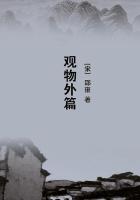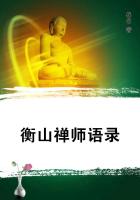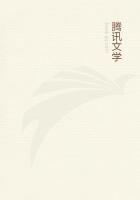There can be but little question that the first-named habits have the advantage in respect of aesthetic or honorific value, and therefore in respect of the "worth" which is made the basis of award in the comparison. The content of the canons of taste, and more particularly of the canons of honor, is in the nature of things a resultant of the past life and circumstances of the race, transmitted to the later generation by inheritance or by tradition; and the fact that the protracted dominance of a predatory, leisure-class scheme of life has profoundly shaped the habit of mind and the point of view of the race in the past, is a sufficient basis for an aesthetically legitimate dominance of such a scheme of life in very much of what concerns matters of taste in the present. For the purpose in hand, canons of taste are race habits, acquired through a more or less protracted habituation to the approval or disapproval of the kind of things upon which a favorable or unfavorable judgment of taste is passed. Other things being equal, the longer and more unbroken the habituation, the more legitimate is the canon of taste in question. All this seems to be even truer of judgments regarding worth or honor than of judgments of taste generally.
But whatever may be the aesthetic legitimacy of the derogatory judgment passed on the newer learning by the spokesmen of the humanities, and however substantial may be the merits of the contention that the classic lore is worthier and results in a more truly human culture and character, it does not concern the question in hand. The question in hand is as to how far these branches of learning, and the point of view for which they stand in the educational system, help or hinder an efficient collective life under modern industrial circumstances -- how far they further a more facile adaptation to the economic situation of today. The question is an economic, not an aesthetic one; and the leisure-class standards of learning which find expression in the deprecatory attitude of the higher schools towards matter-of-fact knowledge are, for the present purpose, to be valued from this point of view only. For this purpose the use of such epithets as "noble", "base", "higher", "lower", etc., is significant only as showing the animus and the point of view of the disputants; whether they contend for the worthiness of the new or of the old.
All these epithets are honorific or humilific terms; that is to say, they are terms of invidious comparison, which in the last analysis fall under the category of the reputable or the disreputable; that is, they belong within the range of ideas that characterizes the scheme of life of the regime of status; that is, they are in substance an expression of sportsmanship -- of the predatory and animistic habit of mind; that is, they indicate an archaic point of view and theory of life, which may fit the predatory stage of culture and of economic organization from which they have sprung, but which are, from the point of view of economic efficiency in the broader sense, disserviceable anachronisms.
The classics, and their position of prerogative in the scheme of education to which the higher seminaries of learning cling with such a fond predilection, serve to shape the intellectual attitude and lower the economic efficiency of the new learned generation. They do this not only by holding up an archaic ideal of manhood, but also by the discrimination which they inculcate with respect to the reputable and the disreputable in knowledge. This result is accomplished in two ways: (1) by inspiring an habitual aversion to what is merely useful, as contrasted with what is merely honorific in learning, and so shaping the tastes of the novice that he comes in good faith to find gratification of his tastes solely, or almost solely, in such exercise of the intellect as normally results in no industrial or social gain; and (2) by consuming the learner's time and effort in acquiring knowledge which is of no use,except in so far as this learning has by convention become incorporated into the sum of learning required of the scholar, and has thereby affected the terminology and diction employed in the useful branches of knowledge. Except for this terminological difficulty -- which is itself a consequence of the vogue of the classics of the past -- a knowledge of the ancient languages, for instance, would have no practical bearing for any scientist or any scholar not engaged on work primarily of a linguistic character. Of course, all this has nothing to say as to the cultural value of the classics, nor is there any intention to disparage the discipline of the classics or the bent which their study gives to the student. That bent seems to be of an economically disserviceable kind, but this fact -- somewhat notorious indeed -- need disturb no one who has the good fortune to find comfort and strength in the classical lore. The fact that classical learning acts to derange the learner's workmanlike attitudes should fall lightly upon the apprehension of those who hold workmanship of small account in comparison with the cultivation of decorous ideals: Iam fides et pax et honos pudorque Priscus et neglecta redire virtus Audet.
Owing to the circumstance that this knowledge has become part of the elementary requirements in our system of education, the ability to use and to understand certain of the dead languages of southern Europe is not only gratifying to the person who finds occasion to parade his accomplishments in this respect, but the evidence of such knowledge serves at the same time to recommend any savant to his audience, both lay and learned. It is currently expected that a certain number of years shall have been spent in acquiring this substantially useless information, and its absense creates a presumption of hasty and precarious learning, as well as of a vulgar practicality that is equally obnoxious to the conventional standards of sound scholarship and intellectual force.















